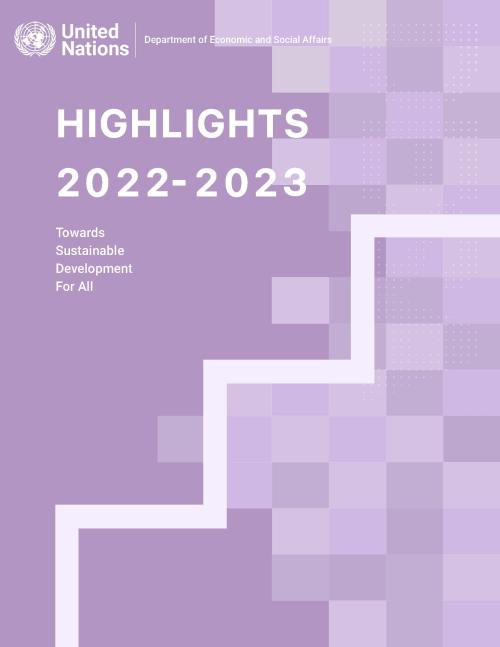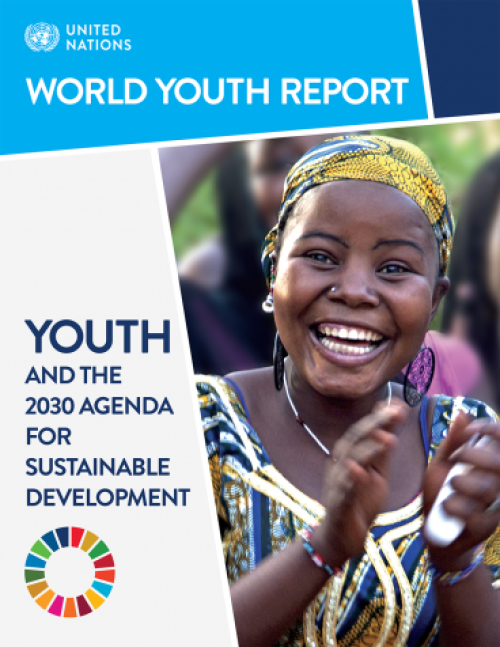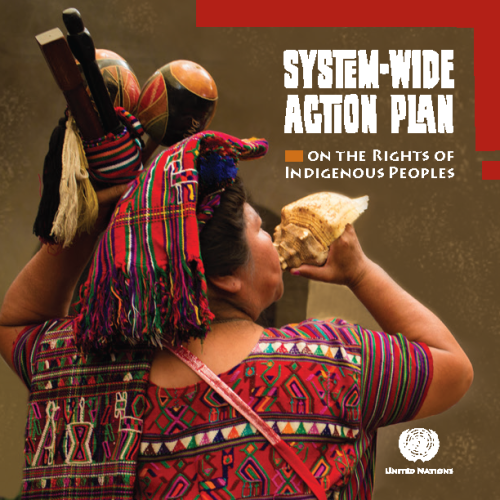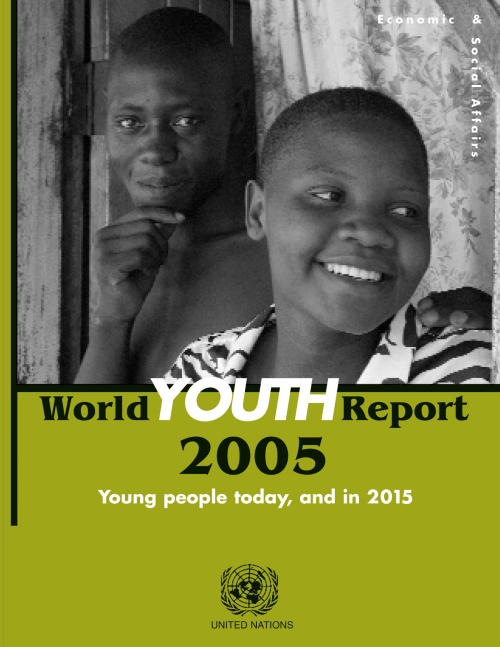Publications

The UN DESA Annual Highlights report is a tool to communicate the contributions of the Department to the realization of internationally agreed development goals and shared social, economic, and environmental aspirations. It showcases the Department’s role in gauging trends, building capacities, and shaping solutions. UN DESA Highlights 2022-2023 covers activities over the period of the 77th Session of the General Assembly (September 2022 – August 2023) and reflects the Department’s response to the set priorities and expressed needs of Member States. Seven (7) thematic chapters showcase how UN DESA put its expertise to the task of supporting Member State efforts to implement the 2030…
The United Nations E-Government Survey 2022 is the 12th edition of the United Nations’ assessment of the digital government landscape across all 193 Member States. The E-Government Survey is informed by over two decades of longitudinal research, with a ranking of countries based on the United Nations E-Government Development Index (EGDI), a combination of primary data (collected and owned by the United Nations Department of Economic and Social Affairs) and secondary data from other UN agencies.
This edition of the Survey includes data analysis in global and regional contexts, a study of local e-government development based on the United Nations Local Online Service Index (LOSI),…

The World Youth Report on “Youth and the 2030 Agenda for Sustainable Development”, prepared by the United Nations Department of Economic and Social Affairs (UN DESA), examines the mutually supportive roles of the new agenda and current youth development efforts. The report provides insight into the role of young people in sustainable development in the context of the implementation of the 2030 Agenda for Sustainable Development and related frameworks, in particular, the Addis Ababa Action Agenda of the Third International Conference on Financing for Development and the World Programme of Action for Youth.
The Report considers the role the 2030 Agenda can play in enhancing youth…

This action plan builds on the momentum and spirit of the 2014 World Conference on Indigenous Peoples and to this end will promote partnership and collaboration between the UN system, civil society organizations, and multilateral bodies such as regional development banks and human rights special procedures and commissions.
This system wide action plan will contribute to the fit for purpose agenda by ensuring stronger linkages between the normative and operational work of the United Nations, increasing coordination and coherence in addressing the rights of indigenous peoples. It calls for strengthened United Nations senior level engagement, encouraging work with Member…

In Africa, as in other regions, persons with disabilities are disproportionately likely to live in poverty and, too often, lack access to education, health care, employment opportunities, housing, social protection systems, justice, cultural expression and participation in political life. The ability of persons with disabilities to participate in society is often frustrated because physical environments, transportation and information and communications systems are not accessible.
In this context, a Toolkit on Disability for Africa has been developed by the United Nations Department of Economic and Social Affairs (UNDESA), Division for Social Policy and Development (DSPD). It is…

The year 2005 marks ten years since the General Assembly adopted the World Programme of Action for Youth in 1995. This report, an official report to the General Assembly, called for a renewed committment to the goals of the World Programme of Action, since over 200 million youth were living in poverty, 130 million youth were illiterate, 88 million were unemployed and 10 million young people were living with HIV/AIDS.
In the World Youth Report 2005, it is argued that too often, youth policy is driven by negative stereotypes of young people, including delinquency, drug abuse and violence. What seems to be forgotten is that young people are a positive force for development, peace,…
 Welcome to the United Nations
Welcome to the United Nations